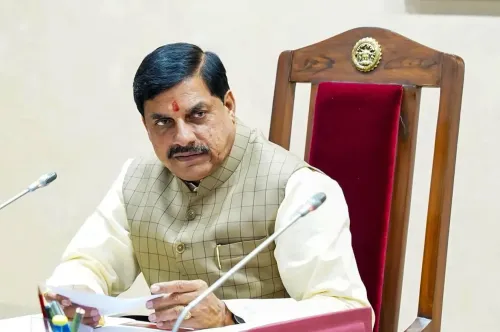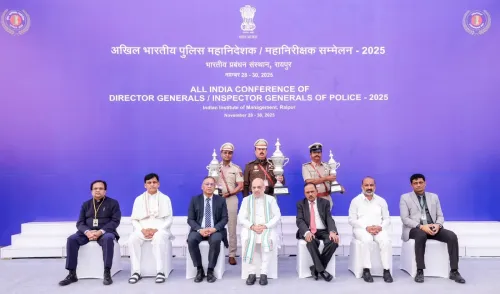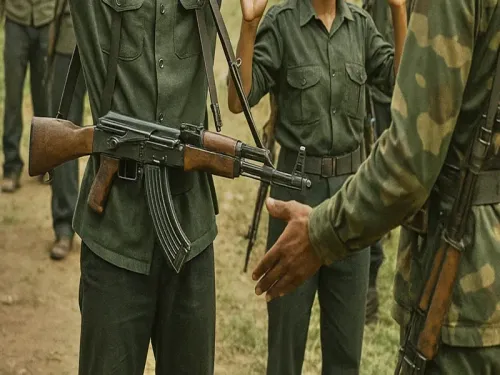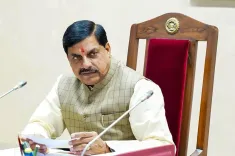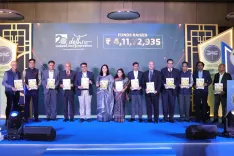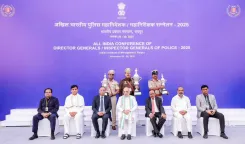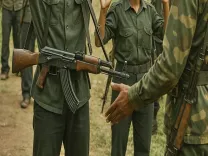Are Major Mohit Sharma's Parents Right to Challenge the Film 'Dhurandhar'?
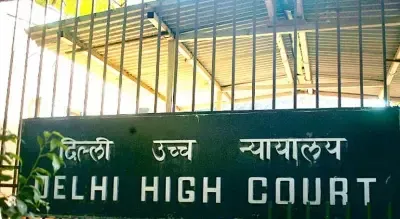
Synopsis
Key Takeaways
- The Sharma family is challenging the film 'Dhurandhar' in court.
- They allege unauthorized exploitation of Major Mohit Sharma's life.
- The case raises important legal questions about consent and dignity.
- National security concerns are also highlighted due to classified missions.
- The family seeks a halt to the film's release until their issues are addressed.
New Delhi, Nov 28 (NationPress) The family of the Late Major Mohit Sharma, who was awarded the Ashoka Chakra, has approached the Delhi High Court to seek a halt to the release of the film 'Dhurandhar'. They claim that the film has been created and marketed by exploiting the life, character, and military service of their esteemed son, a distinguished 1 Para (Special Forces) officer, without their approval.
The writ petition, filed by 77-year-old Sushila Sharma and 75-year-old Rajendra Prasad Sharma, argues that the film, set to premiere on December 5, is being publicly portrayed as “inspired by true events” and is closely linked with the late officer's covert operations and his martyrdom.
The petition states that the film's trailer, promotional interviews, and media reports clearly associate the character played by Ranveer Singh with Major Sharma, who heroically sacrificed his life during a counter-terrorism mission in Kupwara on March 21, 2009.
Describing themselves as “humble and grieving parents”, the petitioners expressed that they were “deeply shaken” upon discovering that the respondents had “used, portrayed, fictionalized and commercially exploited” their son's legacy without seeking or obtaining their consent.
“The true legal test is not whether the respondents verbally deny such linkage, but rather whether a reasonable viewer would unmistakably identify the protagonist with the real-life decorated martyr upon viewing the trailer and promotional content,” the plea, filed through advocates Roopenshu Pratap Singh and Manish Sharmaa, stated.
“This petition raises essential questions about Article 21, the right to dignity of the deceased, personality rights, and the government's responsibility to prevent the unauthorized commercial exploitation of a national hero's life,” it added.
The petition names the Union Ministry of Information and Broadcasting, the Central Board of Film Certification (CBFC), the Additional Directorate General of Public Information (ADGPI), film director Aditya Dhar, and Jio Studios president Jyoti Deshpande as respondents.
The plea seeks a writ of mandamus to restrain the release, distribution, or exhibition of the film in any manner until the family is shown the unedited version and their concerns are addressed.
The petition also claims that the portrayal of Special Forces operations, military insignia, counter-terrorism missions, and a protagonist resembling Major Sharma necessitates mandatory verification and No-Objection Clearance from the Army's ADGPI.
“Given the sensitive nature of the military content depicted in the film, the petitioners fear that the respondents have proceeded without obtaining the required approvals,” the petition asserted.
Expressing serious concerns regarding national security, the petition highlighted that some of Major Sharma's missions are “classified”.
The plea further argues that the unauthorized representation violates the doctrine of posthumous dignity and the family's right to reputation under Article 21.
Additionally, the plea referenced numerous mainstream reports and social media discussions linking Ranveer Singh's character to Major Sharma, as well as mapping other reel characters to real-life figures, including Ajit Doval, Rehman Dakait, Ilyas Kashmiri, and Karachi police officer Chaudhry Aslam Khan.
“This consistent reel-to-real pattern leaves no doubt” that the film is based on actual individuals, the family contended.
As interim relief, the petition requests a complete stay on the film's release, a private screening for the family, and the submission of the full script, raw footage, and promotional materials to the Delhi High Court, alongside a temporary halt on all advertisement and trailer dissemination.

